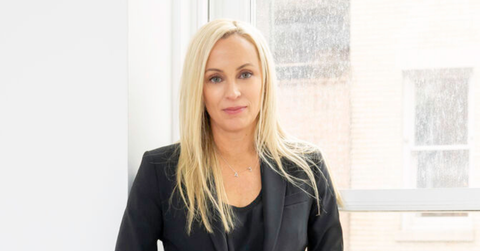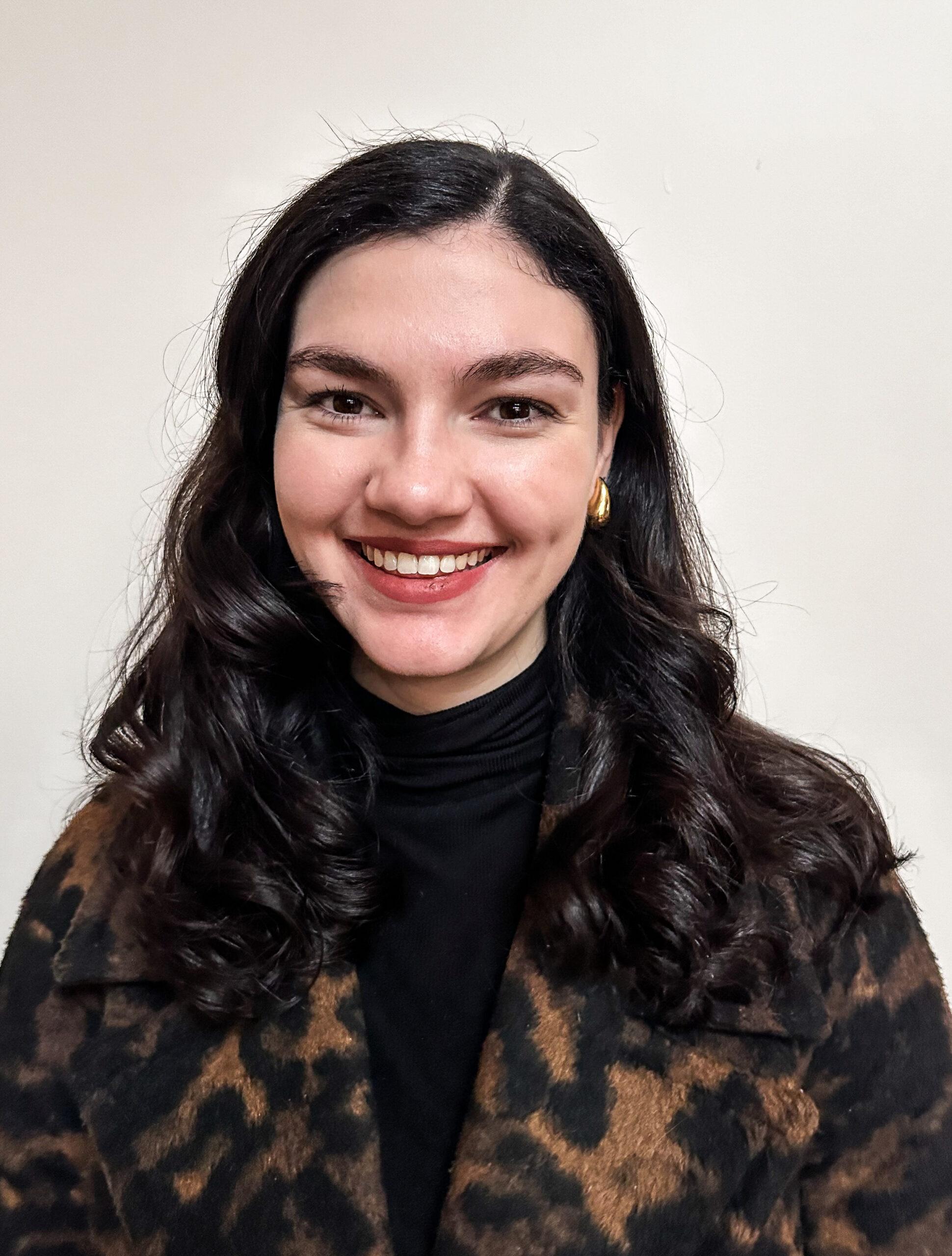Under Julie Cartwright’s leadership, Pvolve, the functional fitness company, has carved out a distinctive niche in the crowded wellness landscape by putting women first.
Pvolve’s method uses patented equipment and resistance-based training designed around how women’s bodies change—accounting for menstrual cycles, pregnancy, menopause, and ageing—backed by research rather than fitness trends.
What sets Julie apart as a leader is her commitment to authentic partnerships and proven business models. Most notably, she’s fostered a genuine relationship with Jennifer Aniston, who joined Pvolve as a part-owner after being a dedicated user of the method for over a year. This authenticity-first approach extends to Pvolve’s hybrid business model, which combines a growing footprint of brick-and-mortar franchise locations with a robust digital subscription platform.
Julie sees franchising as a way to solve a problem she knows too well, which is women wanting to build businesses but hitting walls around capital and networks. Through Pvolve’s franchise model, she’s trying to level that playing field. Instead of pretending those barriers don’t exist, she’s offering women a proven business model and a genuine support system.
She’s direct about what it demands, too. To Julie, success means showing up in your community, doing the hard work, and being prepared to super-serve your members. It’s not a shortcut to entrepreneurship, but for women who want to own something and are willing to put themselves out there. As a result, she believes it’s one of the clearest paths forward.
Her Agenda:What does it truly mean to be a mission-led company, and how do you hold on to that mission when the market gets tough?
Julie Cartwright: Our mission is our guidepost. By having a really strong mission around women, and taking a woman’s first lens does not mean that we are not for men as well, we just think about women first.
I think that’s really helped us in a lot of our decision-making, because our research is all done around women. We have a fitness method that really works with the changing bodies of women throughout their entire lifetime, so that’s everything from childbearing to menopause, to your menstrual cycle, so I think that that has been a secret weapon of ours. It’s hard because everyone’s got an opinion. We’ve heard oftentimes how could you alienate men. We’re not. That’s not what we’re doing. We’re just super serving women, and really standing behind that.
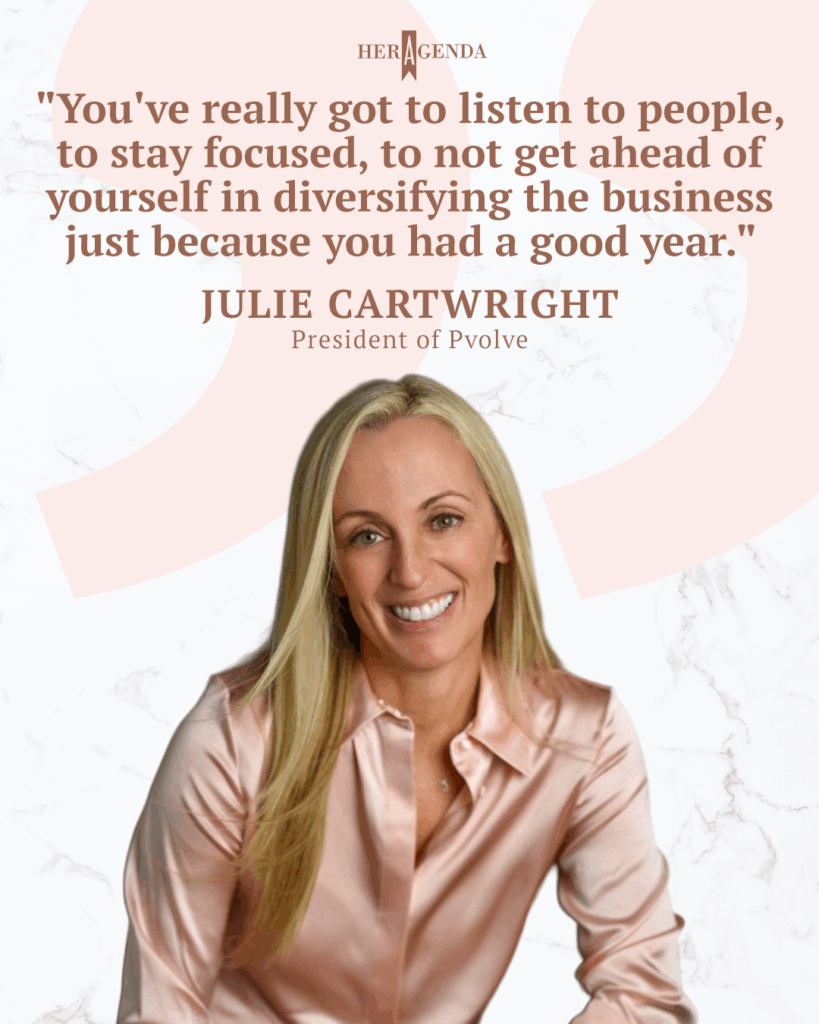
Her Agenda: What barriers do women still face in business ownership, and how can the industry better support them?
Julie Cartwright: The biggest [barrier] women face in ownership is access to capital. Sometimes it’s the network that you have; the mentorship opportunities that you have are not quite as great as what men have.
I will tell you that there’s a lot of opportunity, not just with the other owners and really developing those relationships organically, but also just with the franchisor, in terms of being able to help them through things, because we’ve got a proven business model. However, capital and networks are usually the things that we run into as women being most difficult, and I think the way that the industry can help is just continuing to be aware of that, setting up funding for women-run businesses and investing in women, and also setting up additional mentorship programs for women. I think that would be phenomenal.
Her Agenda: What is the strategy behind authentic celebrity partnerships, and what does Jennifer Aniston’s role at Pvolve look like?
Julie Cartwright: Authenticity is at the very top. Jennifer asked us to join the company.
She had been working out with Pvolve sort of secretly as a secret streamer for about a year, and so I think that’s where it starts. You have to make sure that the people who are going to join your company as spokespeople, as ambassadors, as affiliates, that they actually genuinely love the product and consume it or use it, and that’s exactly what was happening. She was obsessed with the method, and she really just asked to join the company, so that is just so unreal.
She is a part-owner of the company, but she gets involved in a lot of different ways. She states her opinion, she uses her platform, which is her celebrity status, in order to be disruptive with the message and market the fact that everybody needs to be doing this as part of their fitness routine. So she uses her voice.
She’s certainly an advisor, too. She gives her opinion about everything, from our equipment, to the way that we’re showing up, to how we’re marketing, to who we’re serving, all of the above.
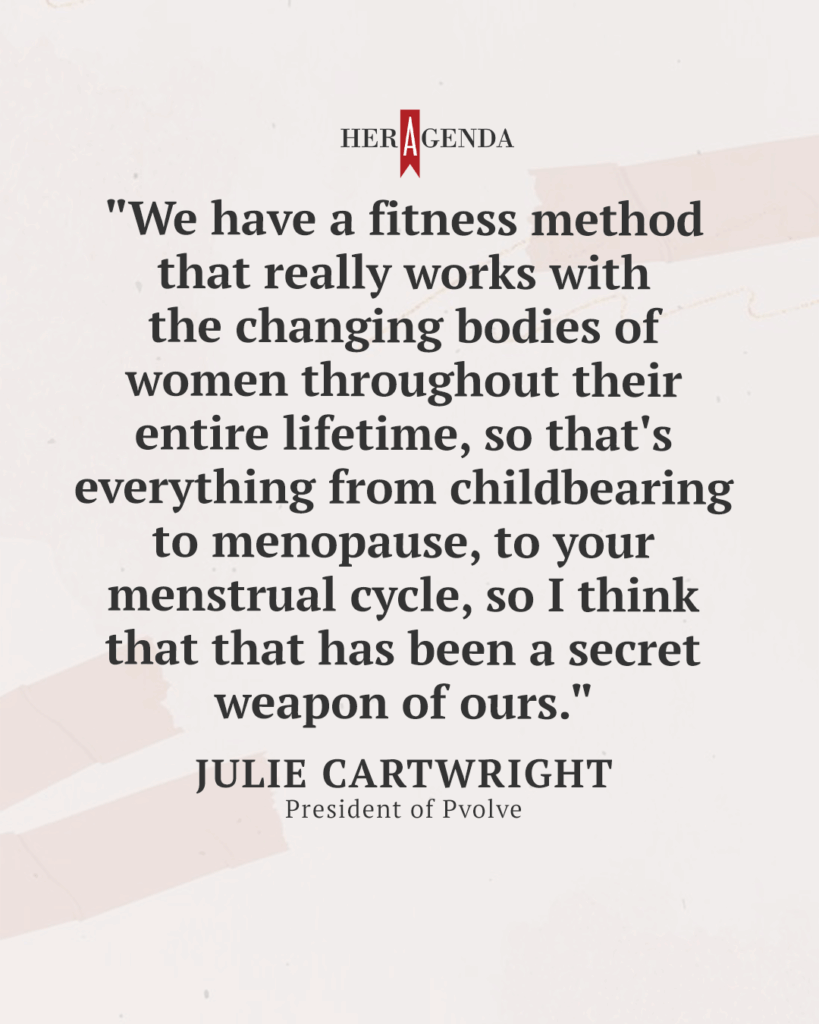
Her Agenda: Why is functional fitness becoming a dominant force in wellness, and how does it differ from traditional fitness trends?
Julie Cartwright: I think the way that it differs from traditional fitness trends is really that the movements are mimicking your everyday movements, so you’re actually working in all three planes of motion. We do a lot around opening your hips, doing a lot of mobility and stability, because that’s what your body faces from an everyday perspective.
It’s also really good for your overall body, because it focuses not only on strength, which is critically important, but it also involves mobility and stability, and those two are not always thought about as critically important to your health span.
If you can’t move your body, if you can’t help yourself to not fall, those things are going to dramatically impact your health span.We’ve got resistance-based training with our patented pieces of equipment that’s incorporated, and then we work with our doctors on putting together specialized programming based on individual need states, so everything from chronic lower back pain to someone facing menopause and healthy ageing. These moments in your life need specialized care, and so we’ve got a couple of additional points of differentiation, but that’s what functional fitness is.
I think people are really tuning into their health span and longevity, and they’re realizing that what they’re currently doing, maybe perhaps HIIT or marathon running, needs something else to preserve the joints, preserve the movement, so they can continue to do those things, because we’re not saying don’t do them. We’re just saying you need to incorporate functional movement alongside your training to be able to do them longer in your life.
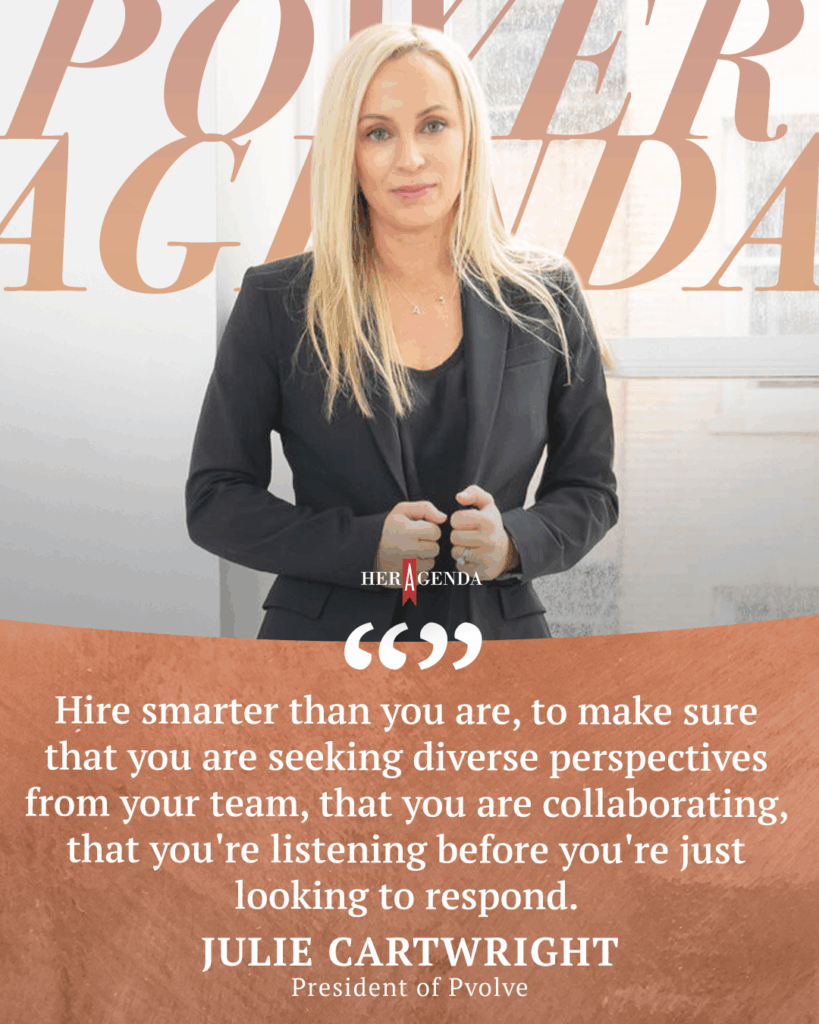
Her Agenda: What advice would you give a woman considering franchising as her entry point into entrepreneurship?
Julie Cartwright: I would say do your research. I think that there’s a lot of choice out there.
Make sure that the team behind that particular concept is very supportive, that you can trust them, and that they have a proven model. I also think you have to be prepared to put the hard work in, especially with a brick-and-mortar franchise like ours. You need to be able to network, you need to be able to get out into your community, and you need to be able to be there to super serve your members. So don’t be afraid of the hard work. Don’t do it if you don’t want to work hard, to be honest.
It’s incredibly rewarding, but it certainly takes you really putting yourself out there.
Her Agenda: What leadership lessons have you carried from scaling major wellness brands into your current role?
Julie Cartwright: Hire smarter than you are, to make sure that you are seeking diverse perspectives from your team, that you are collaborating, that you’re listening before you’re just looking to respond.
You’ve really got to listen to people, to stay focused, to not get ahead of yourself in diversifying the business just because you had a good year. Stay true to what you’re really good at, and surround yourself by really good people who share your core values.

Her Agenda: In such a crowded wellness landscape, how do you differentiate without compromising values in a company?
Julie Cartwright: First of all, we’re really putting functional movement, functional fitness, and resistance-based training on the map. We’ve got patented pieces of equipment that you don’t see anywhere else in fitness.
And we’ve put that rigour into clinical studies, which is also a really massive differentiator, in that we’ve invested heavily in clinical research that in clinical trials prove out our outcomes. We’re also truly a hybrid. So we’ve got a growing footprint of brick-and-mortar retail locations, but we also have a really robust digital subscription.
[Editor’s note: This feature has been edited for length and clarity.]

